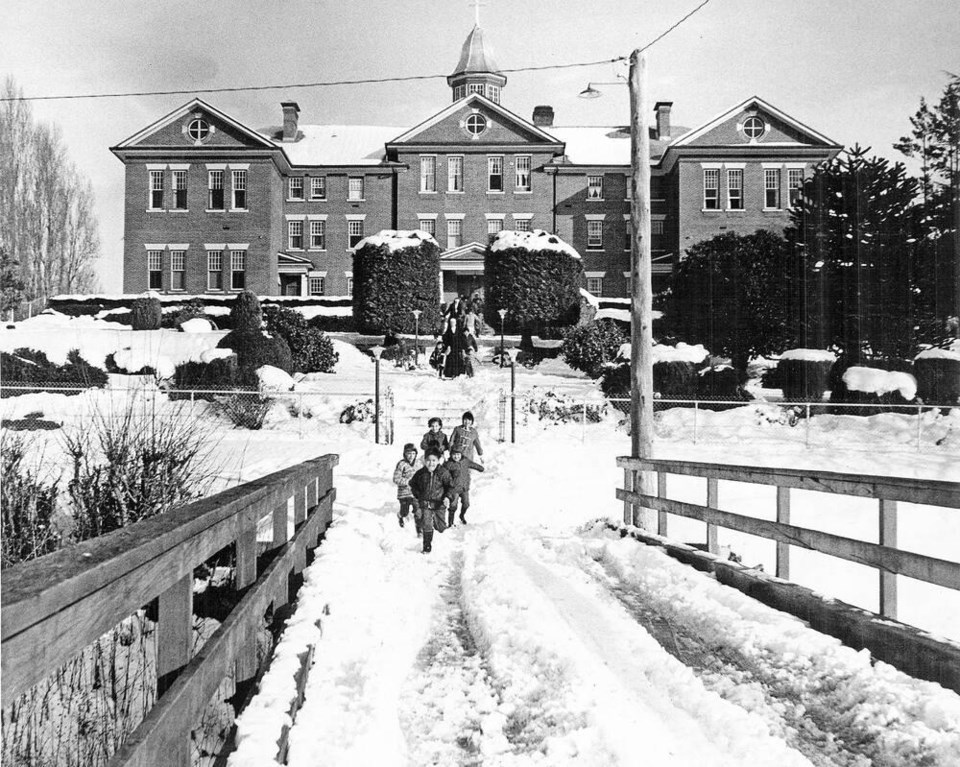Penelakut First Nation plans to announce on Monday the interim results of a years-long investigation into marked and unmarked burials at the former Kuper Island Indian Industrial School.
The First Nation announced in 2021 that more than 160 undocumented and unmarked graves had been found on the foreshore and on land once home to the residential school, which closed in 1975, but provided no further details at the time.
Monday’s announcement will include findings from archival research and ground-based investigations from recent years, the First Nation said.
Robert Sam, who has been leading the Penelakut’s residential school project, said Andrew Martindale, a professor and archaeologist at the University of B.C., will share his findings in Chemainus after the March for the Children walk.
Martindale, who has been working with the nation since the early 2000s, has been guided by the nation’s elders in his work, Sam said in an interview.
Penelakut Island, where the nation’s main reserve is located, was home to a residential school run by the Catholic Church with federal funding from 1889 to 1969. From 1969 until it closed in 1975, it was run by the federal government.
The first pupil was admitted to Kuper Island Industrial School on June 9, 1890, according to admission and discharge documents from the federal government.
It was known by several other names before the school was closed in 1975.
Penelakut demolished the building with its white cross and bell tower in 1985.
The National Centre for Truth and Reconciliation at the University of Manitoba has records of 202 deaths of students at residential schools on Vancouver Island, including 121 deaths at the Kuper Island school.
Two sisters drowned while trying to escape in 1959, and another student died by suicide in 1966.
In 1995, a former employee at the school admitted to three charges of indecent assault and gross indecency.
First Nations survivors and researchers say greater numbers of children died as a result of neglect, tuberculosis and meningitis, fires and injuries from beatings and rapes, and those deaths were never recorded.
James Charlie, a survivor of Kuper Island residential school and St. Mary residential school in Mission, said the experiences of children in residential schools cannot be ignored.
Charlie said he was the fourth generation in his family that was forced to attend residential schools, where pupils were forbidden to practise their culture and speak their languages.
“This tragic history that has happened with First Nations, the RCMP, the church and the colonial government — the story must be told,” he said in an interview.
The nation’s announcement is expected to include representatives from Tla-o-qui-aht, Stó:lō, Tk̓emlúps, Nadleh Whut’en and Tseshaht nations who are serving as witnesses at the event.
Spencer Chandra Herbert, minister of Indigenous Relations and Reconciliation, is also expected to attend.



